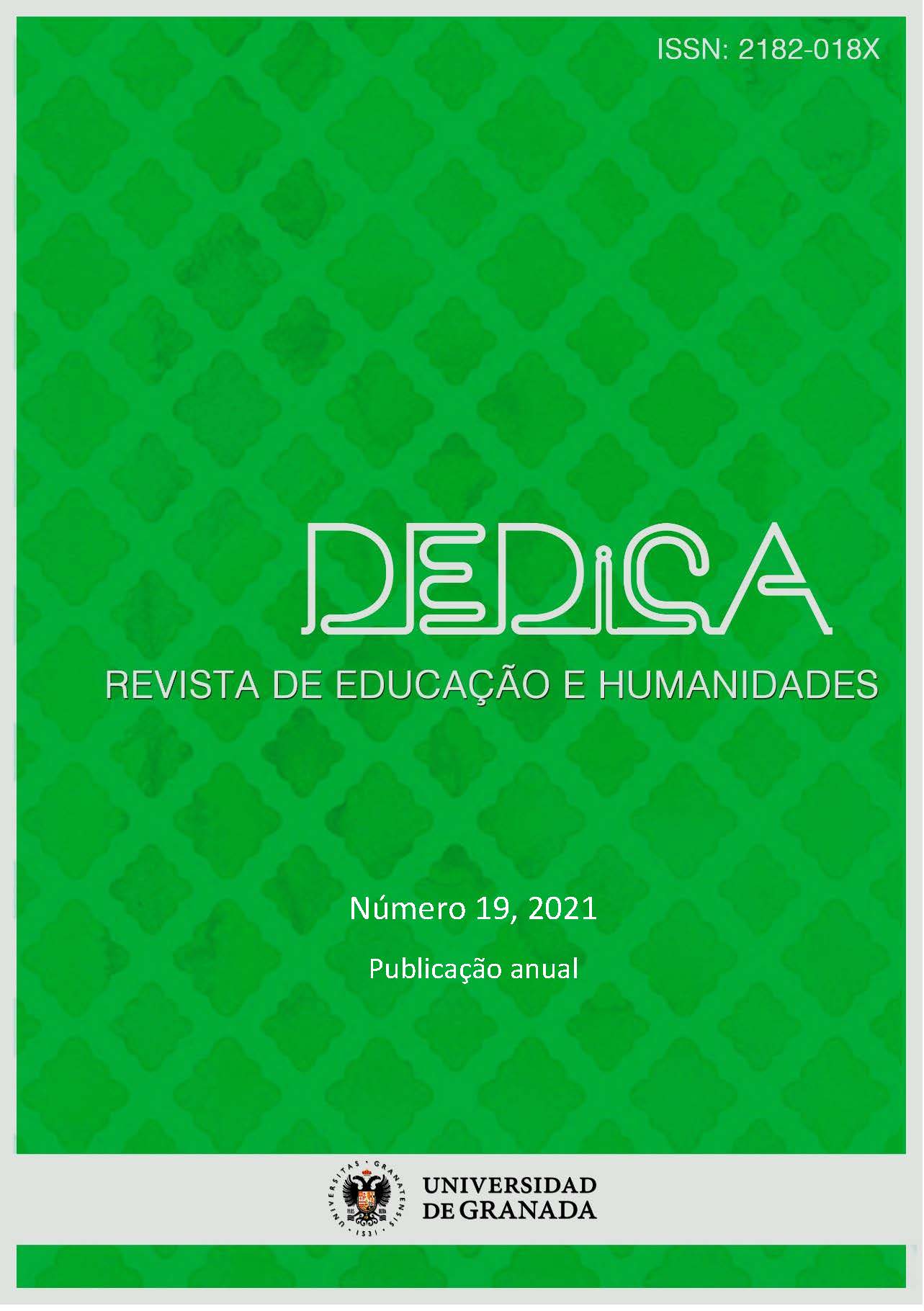Improving family-school relationship: development of a descriptive program in Primary Education
DOI:
https://doi.org/10.30827/dreh.vi19.21813Keywords:
collaboration; family; interaction; participation; schoolAbstract
During a child’s development, collaboration and participation between families and school gain relevance, as well as the importance of creating harmonic relationships between parents and their children. It is widely agreed that in recent years, numerous changes in these contexts have been noticed, which, in some cases, have caused an estrangement between families and schools, apart from a deterioration of family relationships, resulting in low academic efficiency or emotional issues, among others.
Starting from this point, the main aim of the present study is to design and implement an intervention program to improve the relationship among students, parents, and school, through different strategies and experiences.
The study has been implemented with students of 1st and 2nd year of Primary Education, their tutors, and parents, in a private center of Infant and Primary Education in the Region of Murcia. It follows a non-experimental descriptive methodology.
The results obtained have shown an improvement in the collaboration, relationship and communication between students, teachers, and families, which has had a positive impact on the development of students and the improvement of educational processes.
Downloads
References
Ato Lozano, E.; Galián Conesa, M. D.; Fernández-Vilar, M. A. (2015). The moderating role of children's effortful control in the relation between marital adjustment and parenting. Journal of Child and Family Studies, 24, 3341-3349.
Bandura, A. (1971). Teoría del aprendizaje social. Espasa Calpe: Madrid.
Bates, J. E.; Pettit, G. S.; Dodge, K. A.; Ridge, B. (1998). Interaction of temperamental resistance to control and restrictive parenting in the development of externalizing behavior. Developmental Psychology, 34, 982-995.
Cabrera Muñoz, M. (2009). La importancia de la colaboración familia-escuela en la educación. Revista de innovación y experiencias educativas, 16, 1-9.
Domínguez Martínez, S. (2010). La educación, cosa de dos: la escuela y la familia. Revista digital para profesionales de la enseñanza, 8, 1-15.
Dornbush, S. M.; Ritter, P. L.; Leiderman, P. H.; Roberts, D. F.; Fraleigh, M. J. (1987). The relation of parenting style to adolescent school performance. Child Development, 58, 1244-1257.
Egeland, B.; Sroufe, L. A. (1981). Attachment and early maltreatment. Child Development, 52, 44-52.
Fernández, M. P. (2009). Los estilos educativos de los padres y madres. Innovación y experiencias educativas, 16, 1-9.
Flecha, A.; García, R.; Gómez, A.; Latorre, A. (2009). Participación en escuelas de éxito: una investigación comunicativa del proyecto Includ-ed. Project, Culture and Education, 21, 183-196.
Flecha, R. (2009). Cambio, inclusión y calidad en las comunidades de aprendizaje. Culture and Education, 21, 157-169.
García Aretio, L. (1989). La educación. Teorías y conceptos. Perspectiva integradora. Madrid: Paraninfo.
Grolnick, W. S.; Bridges, L. J.; Connell, J. P. (1996). Emotion Regulation in Two-Year-Olds: Strategies and Emotional Expression in Four Contexts. Child Development, 67, 928-941.
Grolnick, W. S.; Kurowski, C. O.; McMenamy, J. M. (1998). Mothers’ Strategies for Regulating Their Toddlers´ Distress. Infant Behavior and Development, 21, 437-450.
Iborra, I. (2014). Violencia y acoso escolar: concepto, incidencia y factores de riesgo y protección. Valencia: Universidad Internacional Valenciana.
Jiménez, M. J. (2010). Estilos educativos parentales y su implicación en diferentes trastornos. Portal de Educación de la Junta de Andalucía. https://www.juntadeandalucia.es/educacion/portals/web/ced
Macbeth, A. (1989). Involving parents. Effective parent-teacher relations. Oxford: Heinemann Educational.
Maccoby, E. M. (1980). Social Development: Psychological Growth and the Parent-Child Relationship. New York: Harcourt Brace Jovanovich.
Raya, A. F. (2008). Estudio sobre los estilos educativos parentales y su relación con los trastornos de conducta en la infancia. Tesis inédita de doctorado. Córdoba: Universidad de Córdoba.
Sanmartín, J. (2011). Violencia y acoso escolar: concepto, incidencia y factores de riesgo y protección. Valencia: Universidad Internacional Valenciana.
Sarramona, J. (2000). Teoría de la educación. Barcelona: Ariel.
Torío, L.; Peña, V.; Rodríguez, M. C. (2008). Estilos educativos parentales. Revisión bibliográfica y reformulación teórica. Teoría de la educación. Revista Interuniversitaria, 20, 151-178.
Wachs, T. D. (1991). Synthesis: Promising research designs, measures and strategies. En Wachs, T. D.; Plomin, R. (Eds.). Conceptualization and measurement of organism-environment interaction, pp. 162-182. Washington, DC (USA): American Psychological Association.
Wise, G.; Thornburg, H. (1978). Home-school relationships: an educational crisis. Education, 99(2), 180-187.












